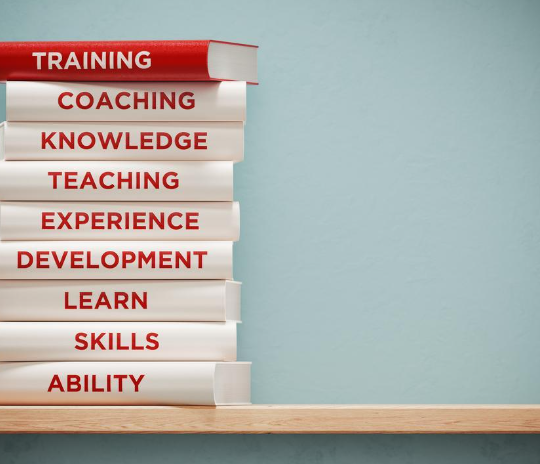 Engineering is a vast discipline, and different engineers do different work. The common link between all engineers is that they use principles of science, engineering, mathematics, and other related disciplines to find economical solutions to technical issues. Engineers work in all industries improving how we live, work, travel, entertain, and even stay healthy.
Engineering is a vast discipline, and different engineers do different work. The common link between all engineers is that they use principles of science, engineering, mathematics, and other related disciplines to find economical solutions to technical issues. Engineers work in all industries improving how we live, work, travel, entertain, and even stay healthy.
The field of engineering has more career choices compared to any other discipline.
Table of Contents
- 1 What does an engineer do?
- 2 Aerospace Engineer
- 3 Agricultural Engineer
- 4 Biochemical Engineer
- 5 Biofuel Manufacturing Research Engineer
- 6 Biomedical Engineer
- 7 Chemical Engineer
- 8 Civil Engineer
- 9 Computer Hardware Engineer
- 10 Computer Systems Engineer
- 11 Environmental Engineer
- 12 Flight Engineer
- 13 Geotechnical Engineer
- 14 Geothermal Engineer
- 15 Industrial Engineer
- 16 Mechanical Engineer
- 17 Mechatronics Engineer
- 18 Mining Engineer
- 19 Nanosystems Engineer
- 20 Nuclear Engineer
- 21 Petroleum Engineer
- 22 Power Engineer
- 23 Product Safety Engineer
- 24 Robotics Engineer
- 25 Marine Engineer
- 26 Software Engineer
- 27 Software Quality Assurance Engineer
- 28 Water Engineer
- 29 Wind Energy Engineer
What does an engineer do?
Engineers build stuff, from the smallest battery to the biggest skyscraper, they are responsible for building all. They also work at the molecular level creating and developing drug delivery systems that can quicken healing. Engineers also help improve the overall quality of our lives by figuring out ways to minimize pollution, clean up oil spills, industrial sites, and other biological hazards.
Engineers are also responsible for designing spacecraft and satellites that go beyond the earth’s atmosphere. They are also responsible for our safety- from providing clean drinking water, protecting the environment, and keeping our personal information safe.
There are different types of engineers, and they all do different things.
Let’s find out.
Aerospace Engineer
Aerospace engineers are responsible for directing and coordinating the design, manufacture, and testing of aircraft and aerospace products.
Agricultural Engineer
Agricultural engineers are responsible for developing new and innovative technologies and methods of improving agricultural operations, land use, enhancing yields, and conserving resources.
Biochemical Engineer
They are responsible for conceiving and developing new chemical products that can be used by a large number of individuals and companies.
Biofuel Manufacturing Research Engineer
These engineers are responsible for developing alternative fuels. They select, test, and recommend equipment and processes for improving the production of alternative fuels.
Biomedical Engineer
Biomedical engineers analyze and design solutions for biology and medicine problems.
Chemical Engineer
Chemical engineers create and design processes for the production or use of chemicals and other products.
Civil Engineer
Civil engineers plan, design, supervise, and maintain large infrastructure projects, including buildings, roads, airports, dams, tunnels and more.
Computer Hardware Engineer
These engineers research, design, develop, and test computer equipment such as chips, motherboards, or routers.
Computer Systems Engineer
Computer Systems Engineers advise clients about the appropriate hardware and software to meet the businesses’ requirements.
Environmental Engineer
Environmental engineers work on developing solutions to environmental problems like pollution and global warming.
Flight Engineer
The flight engineer has to ensure that all components in an airplane are in proper working order.
Geotechnical Engineer
Geotechnical engineering is a sub-discipline within civil engineering that involves investigating and understanding the behavior of earth materials.
Geothermal Engineer
Geothermal engineers conceive and design processes and equipment that convert the earth’s thermal energy into electrical power.
Industrial Engineer
Industrial engineers are responsible for figuring out ways to eradicate wastefulness in production processes.
Mechanical Engineer
Mechanical designers are responsible for creating, designing, developing, building, and testing mechanical devices, including tools, engines, and machines.
Mechatronics Engineer
Creating machines composed of several parts, including the mechanical system, the sensing and actuation, the control systems, and the software is the work of a mechatronics engineer.
Mining Engineer
Mining engineers design mining processes for the safe and efficient removal of minerals from the earth’s surface for manufacturing and utilities.
Nanosystems Engineer
Nanosystems engineers are responsible for investigating the microscopic interactions between various materials.
Nuclear Engineer
Nuclear engineers research and develop processes, equipment, and systems to get benefits from nuclear energy and radiation.
Petroleum Engineer
The job of a petroleum engineer is to locate reservoirs of crude oil and natural gas beneath the earth’s surface and find efficient ways of extracting them.
Power Engineer
Power engineers operate, maintain, renovate, and repair boiler systems and other mechanical systems in a facility.
Product Safety Engineer
These engineers are responsible for developing and carrying out tests and experiments to gauge the safety levels of products.
Robotics Engineer
Creating robots and robotic systems to perform duties that humans can’t or prefer not to complete is the job of a robotics engineer.
Marine Engineer
Marine engineers design, build and maintain vehicles and structures that are used on and around water. They coordinate the activity in the technical department aboard a commercial, research, and military ship.
Software Engineer
Software engineers develop software programs by applying engineering principles to software creation.
Software Quality Assurance Engineer
-Software QA engineers are responsible for maintaining design quality. They monitor every phase of software development to ensure the same.
Water Engineer
Water Engineers ensure that clean water is available to all by taking care of sewage and wastewater.
Wind Energy Engineer
Wind energy engineers harness the power of the wind to feed a power grid or other electrical power system by designing wind farms, or their components.
Engineering is a very interesting discipline with different engineers responsible for different tasks. Read more about how to become an engineer on the bizinsure website.







